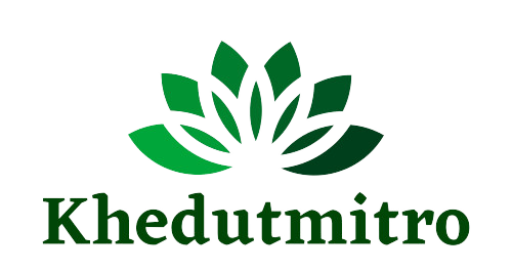Organic farming is a method of agricultural production that prioritizes sustainability, environmental health, and the well-being of both plants and animals. It involves growing crops and raising livestock without the use of synthetic pesticides, herbicides, fertilizers, or genetically modified organisms (GMOs). Instead, organic farmers rely on natural processes and substances to enhance soil fertility, control pests, and promote overall ecosystem balance.


Soil Health:
Organic farmers focus on maintaining and improving soil health through practices such as crop rotation, cover cropping, and the use of organic matter like compost and manure. Healthy soil supports robust plant growth and reduces the need for external inputs.
Crop Rotation:
Growing different crops in a planned sequence helps prevent soil degradation, disrupts pest cycles, and enhances nutrient availability. This practice also contributes to the overall resilience of the farm ecosystem.
Biological Pest Control:
Instead of relying on synthetic pesticides, organic farmers use natural predators, beneficial insects, and other biological methods to control pests. This approach minimizes the environmental impact and helps maintain a balanced ecosystem.
Composting and Mulching:
Organic farmers use compost, cover crops, and mulch to improve soil structure, retain moisture, and suppress weeds. These practices contribute to soil fertility and reduce the need for synthetic fertilizers.
Avoidance of Synthetic Inputs:
Organic farming strictly prohibits the use of synthetic pesticides, herbicides, and fertilizers. Instead, farmers use natural alternatives, such as neem oil, copper, and rock phosphate, to address challenges in plant health.
Genetic Modification:
Organic farming excludes the use of genetically modified organisms (GMOs). Instead, traditional breeding methods are employed to develop crop varieties that are well-adapted to organic farming conditions.
Livestock Practices:
In organic livestock farming, animals are raised with access to outdoor spaces, and their well-being is a priority. Antibiotics and growth hormones are not used, and organic feed is provided.
Advantages of Organic Farming:
Economical:
In organic farming, no expensive fertilisers, pesticides, or HYV seeds are required for the plantation of crops. Therefore, there is no extra expense.
Good return on Investment:
With the usage of cheaper and local inputs, a farmer can make a good return on investment.
High demand:
There is a huge demand for organic products in India and across the globe, which generates more income through export.
Nutritional:
As compared to chemical and fertiliser-utilised products, organic products are more nutritional, tasty, and good for health.
Environment-friendly:
The farming of organic products is free of chemicals and fertilisers, so it does not harm the environment.
Disadvantages of Organic Farming:
Incompetent:
The major issue of organic farming is the lack of inadequate infrastructure and marketing of the product.
Less production:
The products obtained through organic farming are less in the initial years as compared to that in chemical products. So, farmers find it difficult to accommodate large-scale production.
Shorter shelf life:
Organic products have more flaws and a shorter shelf life than that of chemical products.
Limited production:
Off-season crops are limited and have fewer options in organic farming.
Meaning and Importance of Organic Farming


Benefits of Organic Farming


Limitations of Organic Farming
The relevance of Organic Farming






